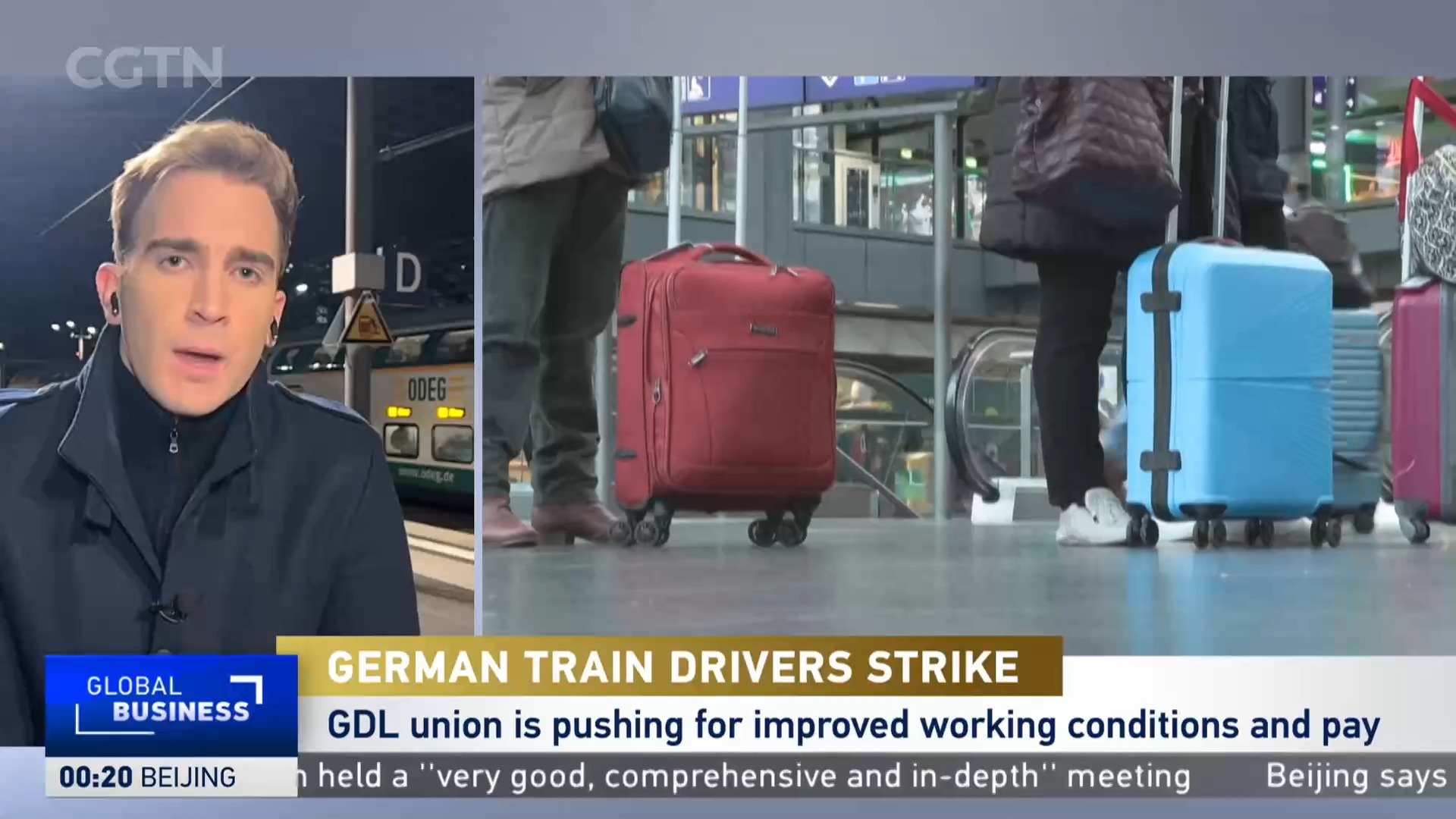01:44

Tens of thousands of train passengers in Germany have faced a day of disruption and delays after a major transport union announced a snap strike.
The GDL union, which represents train drivers, launched the industrial action as negotiations over increased pay faltered with national rail firm, Deutsche Bahn.
The driver-led walkout saw cancellations affecting thousands of services, including long distance intercity express (ICE), regional services, and metro services in a number of German cities including Berlin, Frankfurt and Munich. The strike was slated to last from 10pm Wednesday local time to 6pm Thursday.
READ MORE:
How AI climate modelling could save money, time, and millions of lives
More than 1,200 migrants land on Lampedusa in 24 hours
Hallucinate: Cambridge Dictionary's AI-inspired Word of the Year
Responding to the strike, Deutsche Bahn said it was activating emergency plans to try and run a limited service.
"Around 20 percent of ICE and Intercity trains are currently running in long-distance transport, which will run according to an emergency timetable all day," the company said in a statement.

A platform at Berlin Alexanderplatz U Bahn is busy with passengers during a strike by Germany's GDL train drivers union. /Liesa Johannssen/Reuters
A platform at Berlin Alexanderplatz U Bahn is busy with passengers during a strike by Germany's GDL train drivers union. /Liesa Johannssen/Reuters
Cancellations across the board
Many passengers expressed frustration at the strike, which was announced with less than 24 hours notice.
"We were told that we could get to our destination by changing five times of train today, possibly, but with risk. And we thought: probably not. Who knows what will happen, whether we'll get there..." said a Deutsche Bahn passenger, Kalina.
"There was nothing on the display. And I immediately ran into the information center. People there were so angry, they didn't want to assist at all," said fellow passenger, Wladimir.

Demonstrators take part in a protest during a strike by Germany's GDL train drivers union demanding wage increases and shorter working week in Berlin. /Fabrizio Bensch/Reuters
Demonstrators take part in a protest during a strike by Germany's GDL train drivers union demanding wage increases and shorter working week in Berlin. /Fabrizio Bensch/Reuters
Better pay and conditions
The GDL is asking for train drivers to receive a pay increase of €555 ($593) per month as well as a one-off bonus of €3000 ($3259) to help with rising inflation. It is also seeking to have working week hours reduced from 38 hours to 35 hours without a loss of pay.
Deutsche Bahn has argued that those demands are too high and condemned the strike action.
"This strike is completely unnecessary. We have negotiations on the calendar on Thursday and Friday that we agreed upon together. The train drivers' union ignores agreements and acts irresponsibly," said DB Human Resources Director Martin Seiler
"There is already an 11 percent offer from DB on the table from the opening round with an additional inflation compensation bonus of up to 2,850 euros," he added.
Germany has one of Europe's most extensive high-speed rail networks which is used by thousands of passengers a day to connect to key hubs like Munich, Frankfurt and Hamburg. The strikes domestic airfares rise and an increase in highway traffic as passengers sought alternative travel options.

Subscribe to Storyboard: A weekly newsletter bringing you the best of CGTN every Friday